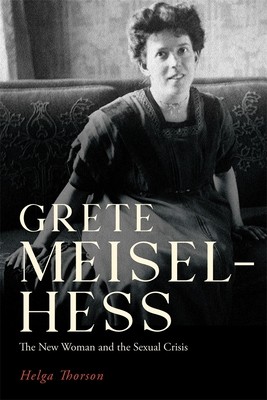
- We will send in 10–14 business days.
- Author: Helga Thorson
- Publisher: Camden House (NY)
- ISBN-10: 1640141030
- ISBN-13: 9781640141032
- Format: 15.2 x 22.9 x 1.8 cm, kieti viršeliai
- Language: English
- SAVE -10% with code: EXTRA
Reviews
Description
This first book in English on Meisel-Hess, an early feminist voice in modernist discourse, illustrates the dynamic interplay between gender, sexuality, and race/ethnicity in Austrian and German modernism.
Grete Meisel-Hess (1879-1922), a contemporary of Freud, Schnitzler, and Klimt, was a feminist voice in early-twentieth-century modernist discourse. Born in Prague to Jewish parents and raised in Vienna, she became a literary presence with her 1902 novel Fanny Roth. Influenced by many of her contemporaries, she also criticized their notions of gender and sexuality. Relocating to Berlin, she continued to write fiction and began publishing on sexology and the women's movement.Helga Thorson's book combines a literary-cultural exploration of modernism in Vienna and Berlin with a biography of Meisel-Hess and a critical analysis of her works. Focusing on Meisel-Hess's negotiations of feminism, modernism, and Jewishness, it illustrates the dynamic interplay between gender, sexuality, and race/ethnicity in Austrian and German modernism. Analyzing Meisel-Hess's fiction as well as her sexological studies, Thorson argues that Meisel-Hess posited herself as both a "New Woman" and the writer of the "New Woman."
The book draws on extensive archival research that uncovered a large number of new sources, including an unpublished drama and a variety of documents and letters scattered in collections across Europe. Until now there have been only limited secondary sources about Meisel-Hess, most containing errors and omissions regarding her biography. This is the first book on Meisel-Hess in English.
EXTRA 10 % discount with code: EXTRA
The promotion ends in 22d.06:45:02
The discount code is valid when purchasing from 10 €. Discounts do not stack.
- Author: Helga Thorson
- Publisher: Camden House (NY)
- ISBN-10: 1640141030
- ISBN-13: 9781640141032
- Format: 15.2 x 22.9 x 1.8 cm, kieti viršeliai
- Language: English English
This first book in English on Meisel-Hess, an early feminist voice in modernist discourse, illustrates the dynamic interplay between gender, sexuality, and race/ethnicity in Austrian and German modernism.
Grete Meisel-Hess (1879-1922), a contemporary of Freud, Schnitzler, and Klimt, was a feminist voice in early-twentieth-century modernist discourse. Born in Prague to Jewish parents and raised in Vienna, she became a literary presence with her 1902 novel Fanny Roth. Influenced by many of her contemporaries, she also criticized their notions of gender and sexuality. Relocating to Berlin, she continued to write fiction and began publishing on sexology and the women's movement.Helga Thorson's book combines a literary-cultural exploration of modernism in Vienna and Berlin with a biography of Meisel-Hess and a critical analysis of her works. Focusing on Meisel-Hess's negotiations of feminism, modernism, and Jewishness, it illustrates the dynamic interplay between gender, sexuality, and race/ethnicity in Austrian and German modernism. Analyzing Meisel-Hess's fiction as well as her sexological studies, Thorson argues that Meisel-Hess posited herself as both a "New Woman" and the writer of the "New Woman."
The book draws on extensive archival research that uncovered a large number of new sources, including an unpublished drama and a variety of documents and letters scattered in collections across Europe. Until now there have been only limited secondary sources about Meisel-Hess, most containing errors and omissions regarding her biography. This is the first book on Meisel-Hess in English.


Reviews